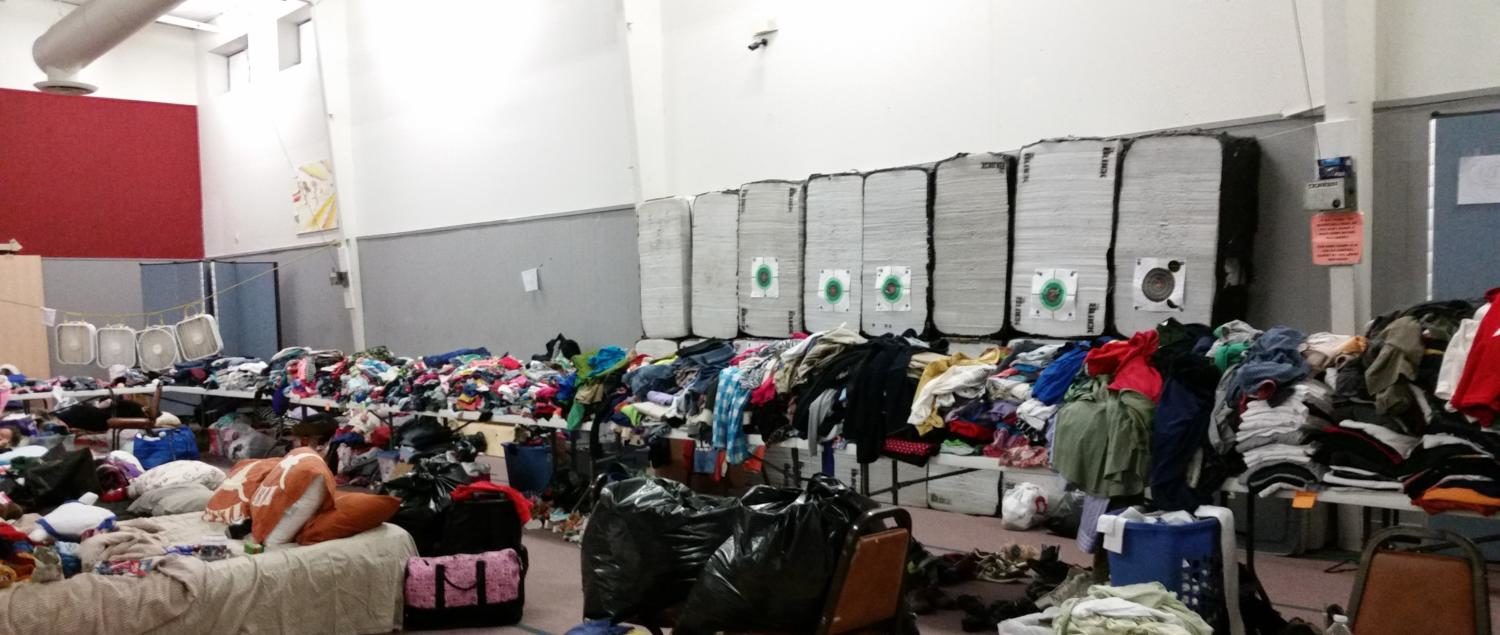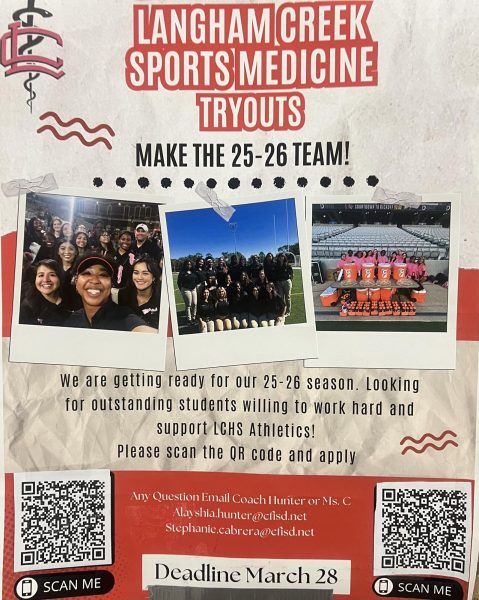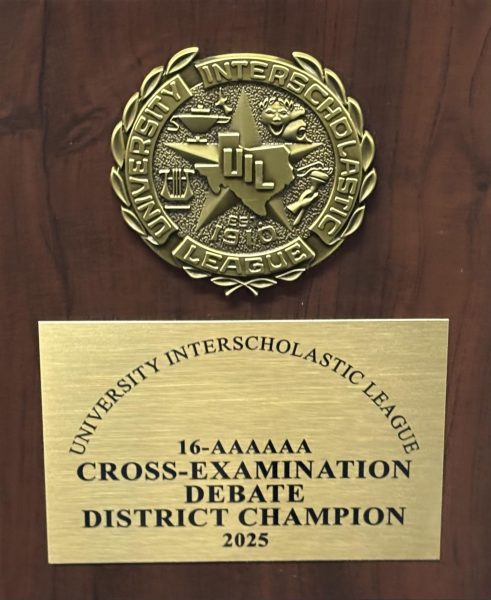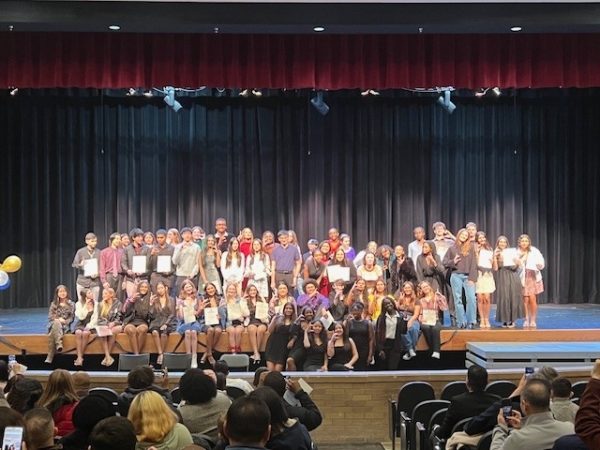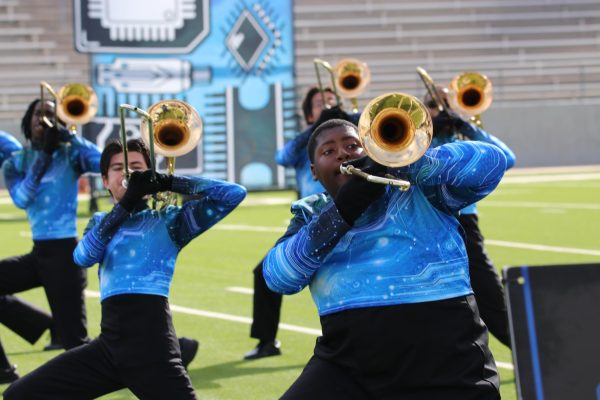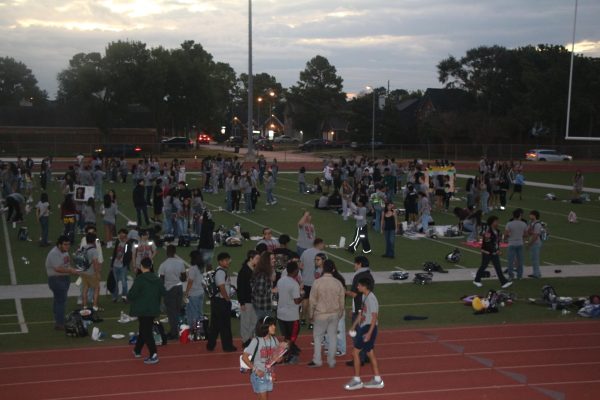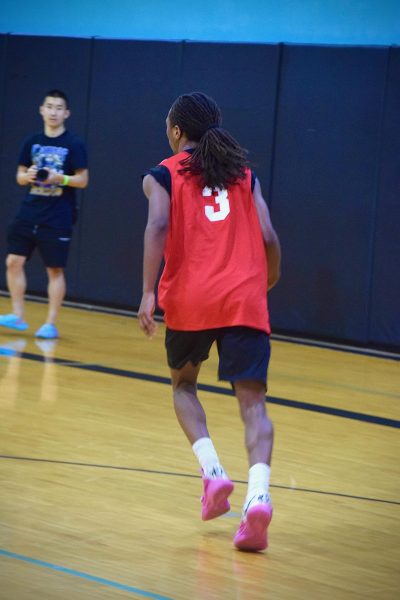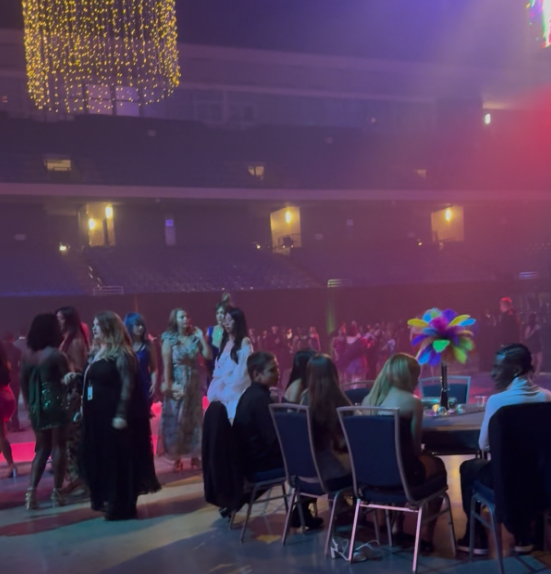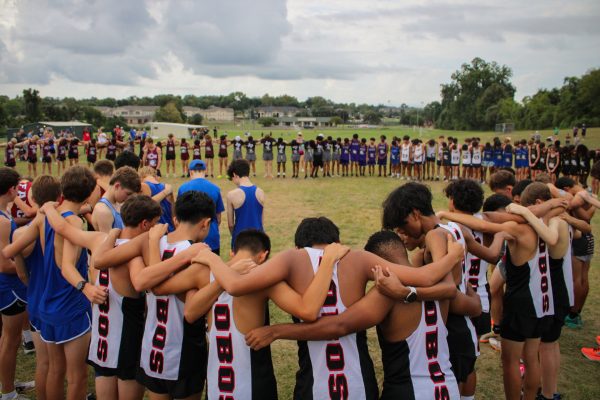Shelter From Harvey
As rain continued to dump down on Houston in buckets, Houstonians seeking shelter flooded Crossbridge Church faster than volunteers could register them on a wrinkled pad of paper. They trickled into a large room beyond the foyer. People pooled on the floor, wrapped up in donated blankets and towels, still shivering, as volunteers rushed around them. Crossbridge, like many other Churches, was accepting anyone left stranded by Hurricane Harvey.
Because there were more people coming, and things needed to be sorted out. Pets had to be brought to a different section of the church, donations were filtered and sorted inside, and a hot lunch was whipped up. This church didn’t have the Red Cross behind it, only neighbors that came by with necessities and their time.
“We desperately wanted to help people. We want to give what we have,” Vicki Hyde said. Her home didn’t see any flooding, like most of the volunteers that came by. She headed to the back and helped put together crates for all of the dogs and cats the church had coming in. When that dried up, she did a little of everything, passing along messages, handing out food, helping with anything thrown her way.
Others found different ways of helping as the day wore on. Families living close by came to see what they could do. A constant stream of willing volunteers came through the doors, asking how they could help, what they could donate.
“I just wanted to help,” Ashton Polk said. “And I was looking at this great big washer and I thought: I can wash clothes!”
After speaking to one of the volunteers, she ended up bringing survivors to her home to let them use her shower. The church didn’t have one, only a pair of small bathrooms and a sizable kitchen. It was the small things that helped people. Hot food, fresh towels, clean clothes. And the church had these things in abundance.
“We seem to be well stocked,” Terran Ruchhoeft said.
In fact, donations started to be turned away at the door. The church had an entire extra room dedicated to towels and blankets alone. A back building was filled to the brim with bottled water, blankets, toiletries, pet food, and clothes. Volunteers had to constantly move it away from the front door, to keep from blocking the main entrance.
Survivors came alone or by bus. They trudged inside, pets and bags filled with their belongings in hand. Volunteers welcomed them inside with towels and guided them to the kitchen for something to eat, asking how they were feeling.
“Can I stay with my dog?” Tow Pawahr asked.
A volunteer showed her the way to the dog room down the hall after she signed in.
“I probably saw a couple hundred people today, volunteers and people staying,” Ruchhoeft said.
Eventually, people started to leave, heading home with friends to stay somewhere more familiar. “Shelters are only temporary,” a lead volunteer kept saying. “Go home if you can.”
People searched for hotels, called friends and family, anything to find a little more stability in the storm that wouldn’t stop coming.
Writer of bad novels, reader of good books. WWII enthusiast and fan of Sudoku.



